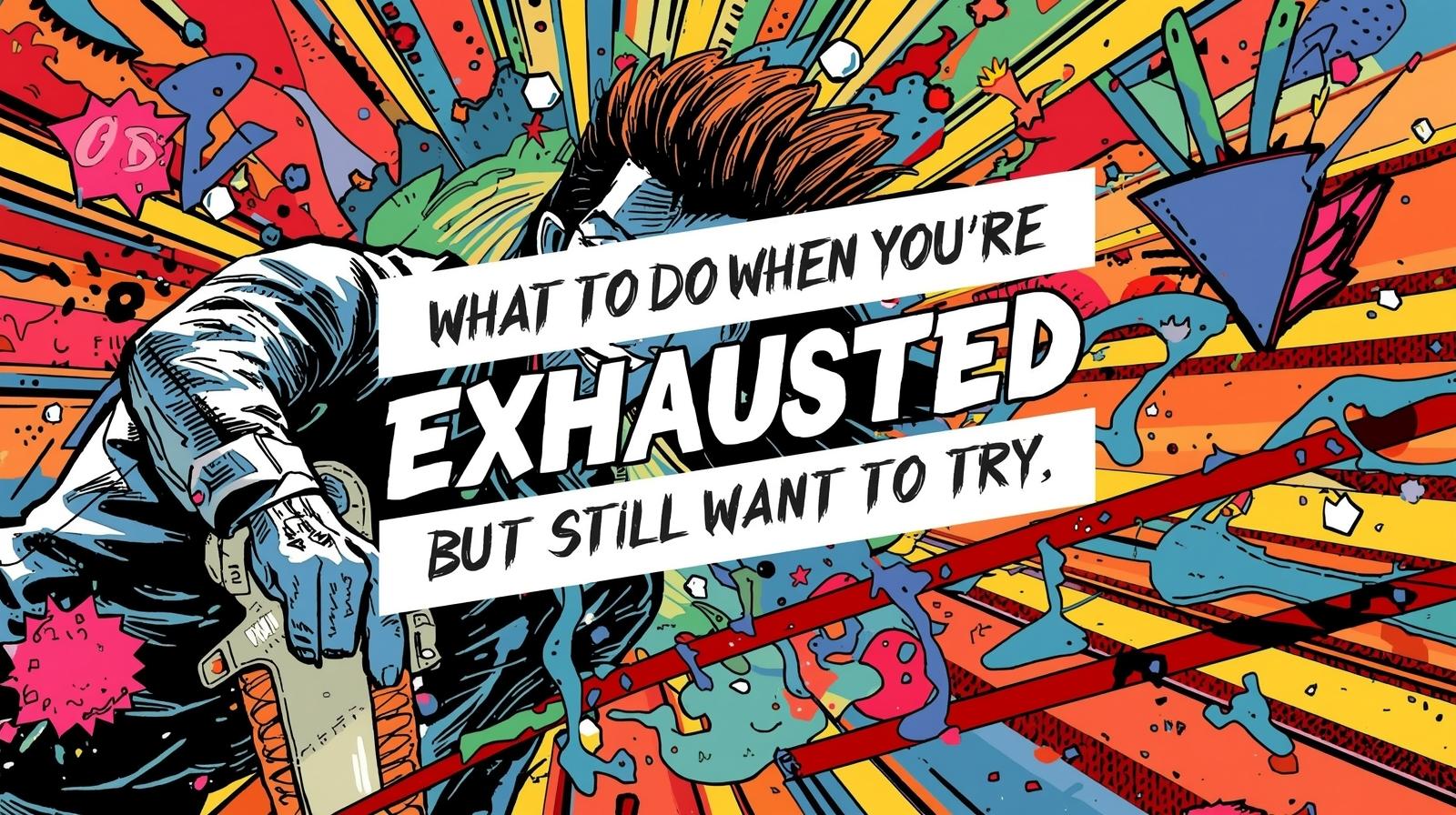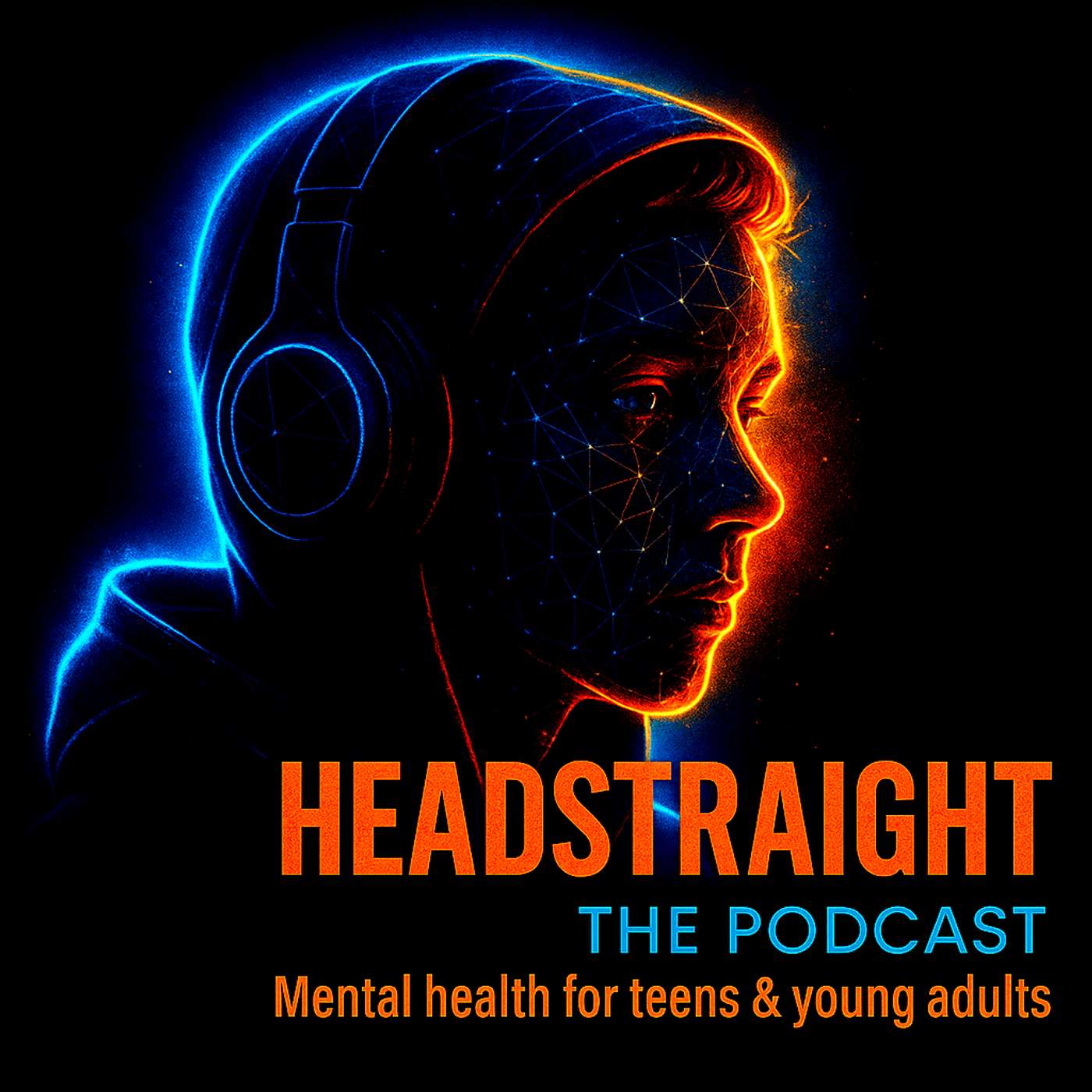What to Do When You’re Exhausted But Still Want to Try

You’ve been doing the work. You’ve faced the fear, the guilt, and the messy bits of change. You’ve started to shift things. But now? Everything feels heavy.
Your brain’s foggy. Your motivation’s tanked. You’re not avoiding the work — you’re just exhausted. And here’s something most people won’t tell you: that’s not weakness. That’s your body waving a white flag. There’s a point where pushing harder stops being brave and starts being self-destructive.
This is for the moments when you know what to do, but you don’t have the energy to do it. Let’s talk about how to keep moving without burning out.
Prefer to listen on your favourite player?
Burnout Isn’t Just About Work
We picture burnout as 80-hour weeks or endless deadlines. But emotional burnout is just as real — and sneakier.
It’s what happens when you’re constantly managing your inner world without a break:
Pretending you’re fine while you’re falling apart.
Holding space for everyone else but never being held yourself.
Pushing through change without pausing to breathe.
Eventually, your nervous system can’t cope. You go numb. Small things irritate you. You feel disconnected, like you’re running on autopilot. That’s not failure — that’s your brain protecting you from overload.
The Truth About Fatigue
This isn’t just being tired. It’s depletion.
Every decision, every bit of self-control, every emotional juggle costs you energy. That’s why even simple tasks start to feel impossible. You forget things. You ghost people. You zone out. It’s like your brain hits low-power mode.
Shaming yourself for it won’t help. What you need isn’t more motivation — it’s a new approach.
Why Routine Beats Motivation
Motivation is unreliable. It comes and goes like a dodgy signal. Routine is what carries you through when motivation vanishes.
You don’t brush your teeth because you’re pumped on dental hygiene. You do it because it’s built in. That’s the point: build small systems while you have energy, so they carry you when you don’t.
Imagine if:
Checking in with yourself was automatic.
Two minutes of stretching was a non-negotiable.
Emotional resets were habits, not chores.
That’s how you create a safety net that doesn’t collapse when you do.
Lower the Bar (But Don’t Drop It)
When you’re running on fumes, aiming for your “best” will break you. Instead, aim for the bare minimum.
If 30 minutes of exercise feels impossible, do 5 squats while the kettle boils.
If journalling for 10 minutes is too much, write one sentence.
If cooking feels overwhelming, grab something with protein and fibre — it doesn’t need to be a masterpiece.
This is survival-mode self-care. Not Instagram-pretty, just functional. You’re not failing — you’re preserving.
Tools That Actually Help
Here’s what to put in place when everything feels too heavy:
1. The Bare Minimum Plan
Write down your ideal habit. Then ask: what’s the smallest version I can manage? That’s your fallback plan.
2. Energy Budgeting
Picture your energy as coins. You only get so many each day.
What drains me?
Where am I overspending?
What actually refills me?
Make cuts. Prioritise. This is boundary-setting with yourself.
3. Tiny Wins
Watered a plant? Win. Replied to that overdue message? Win. Got out of bed when you didn’t want to? Huge win. These moments aren’t small — they’re proof you’re still showing up.
4. Nervous System Resets
When your brain screams I can’t, start with your body.
Try the 4-7-8 breathing technique.
Stretch your arms overhead.
Step outside, even for a minute.
This doesn’t “fix” things, but it calms your system so you can think straight again.
5. Redefine Success
Forget all-or-nothing. Success right now means sustainability.
Making it through the day without quitting.
Not spiralling after a setback.
Showing up at 30% instead of disappearing.
This Week’s Challenge
If you’re in survival mode, here’s your plan:
1. Create your bare minimum version of growth.
2. Audit your energy budget — where are you overspending?
3. Track one tiny win every day. Celebrate it.
4. Practise one reset daily: breathe, move, pause.
5. Repeat this truth: I’m not failing. I’m adapting.
The Bottom Line
You don’t need to be at your best to keep growing. You just need to be honest about where you’re at — and adapt from there.
When life feels overwhelming, lowering the bar isn’t quitting. It’s wisdom. It’s how you stay in the game without breaking yourself.
There’s a cheat sheet for this episode in the show notes. Grab it, stick it where you’ll see it, and let it guide you on the days when everything feels hard.
And if you know someone who’s quietly running on empty right now — share this with them. That small nudge might be exactly what they need.



